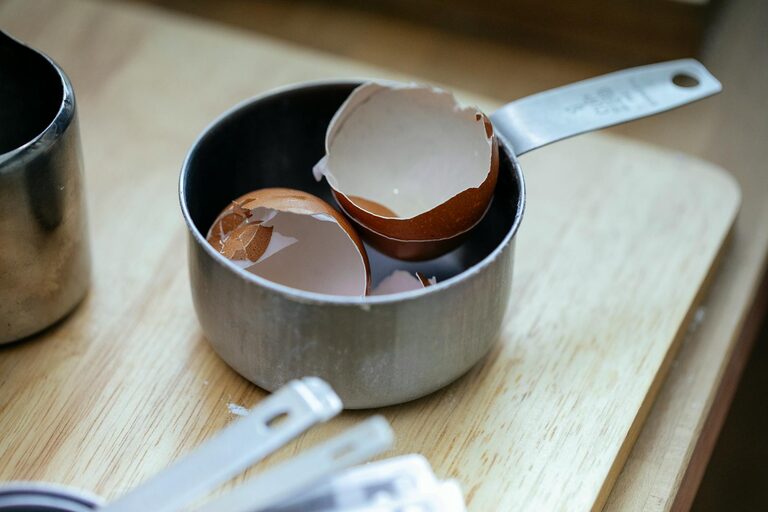Reducing food waste at home is a simple and rewarding practice that benefits both your wallet and the environment. Every year, tons of perfectly good food are thrown away due to over-purchasing, improper storage, or misunderstanding expiration labels. By making a few thoughtful changes in how you shop, store, and use your food, you can significantly cut down the amount of food that goes to waste.
In this post, we’ll explore practical ways to reduce food waste at home. Whether you’re cooking for one or a family, these easy-to-implement strategies can help you save money, reduce garbage, and enjoy fresher meals.
Why Reducing Food Waste Matters
Food waste is a major contributor to environmental issues like greenhouse gas emissions and unnecessary resource use. When food is wasted, all the water, energy, and labor that went into producing, transporting, and storing it are also wasted.
On a personal level, reducing food waste means you get more value out of what you buy, save money on groceries, and create less clutter in your fridge and cabinets.
Plan Your Meals and Shopping Trips
One of the most effective ways to prevent food waste is to plan ahead.
Make a Weekly Meal Plan
Consider what meals you want to prepare during the week and list the ingredients you need. This reduces impulse purchases and ensures you buy only what you’ll use.
Check Your Pantry and Fridge First
Before heading to the store, check what staples and leftovers you already have. This prevents buying duplicates and encourages you to use up existing food.
Use a Shopping List
Stick to a written shopping list to focus on needed items and avoid buying things on a whim.
Smart Grocery Shopping
How you shop can greatly influence how much food goes to waste.
Buy Loose Produce
Instead of pre-packaged fruits and vegetables, choose loose items so you can buy exactly what you need and avoid overeating.
Choose Ripeness Wisely
Select produce based on when you plan to use it. For immediate cooking, pick ripe items; for future use, choose less ripe options that ripen over time.
Avoid Bulk Buys if Not Needed
Buying in bulk can save money but only if you’ll use everything before it spoils.
Store Food Properly
Proper storage keeps food fresh longer and reduces spoilage.
Understand Storage Needs
Learn which items do best refrigerated, frozen, or at room temperature. For example, potatoes and onions should be stored in a cool, dark place but not in the fridge.
Use Airtight Containers
Transfer leftovers and opened packages into airtight containers to maintain freshness.
Keep Your Fridge Organized
An organized fridge helps you see what you have, making it less likely that food will be forgotten and spoiled.
Use Leftovers Creatively
Leftovers don’t have to be boring or end up in the trash.
Repurpose Leftovers
Turn leftovers into new meals like soups, stir-fries, or sandwiches.
Freeze Excess Portions
If you won’t eat leftovers soon, freeze them to extend their shelf life.
Portion Control
Cook or serve smaller portions to avoid uneaten food on plates, but keep extra portions available to save for later.
Understand and Manage Expiration Dates
Expiration labels can be confusing and cause unnecessary waste.
Know the Difference Between Labels
– “Use By” indicates safety; avoid eating past that date.
– “Best Before” refers to quality; food may still be safe but might not be at peak taste or texture.
Trust Your Senses
Smell, look, and taste food to assess freshness rather than discarding based solely on date stamps.
Compost Food Scraps
Not all food scraps can be eliminated, but composting provides an eco-friendly way to handle food waste.
Start a Compost Bin
Collect fruit and vegetable peels, coffee grounds, and egg shells in a compost bin. This reduces landfill waste and creates nutrient-rich soil for gardening.
Use Community Composting Programs
If you don’t have space for composting at home, check if your community offers food scrap collection services.
Educate Your Household
Creating a culture of waste reduction at home involves everyone.
Share Tips with Family Members
Talk about why reducing food waste matters and ways everyone can contribute.
Get Kids Involved
Encourage children to help plan meals and understand the value of food.
Lead by Example
Model waste-conscious behaviors such as finishing your plate or saving leftovers.
Conclusion
Reducing food waste at home is easier than it might seem. With intentional planning, smart shopping, proper storage, creative cooking, and composting, you can make a big difference. These steps not only save money but also contribute to a healthier planet.
Start small by trying one or two tips from this post and build new habits over time. Every bit of food saved counts!

